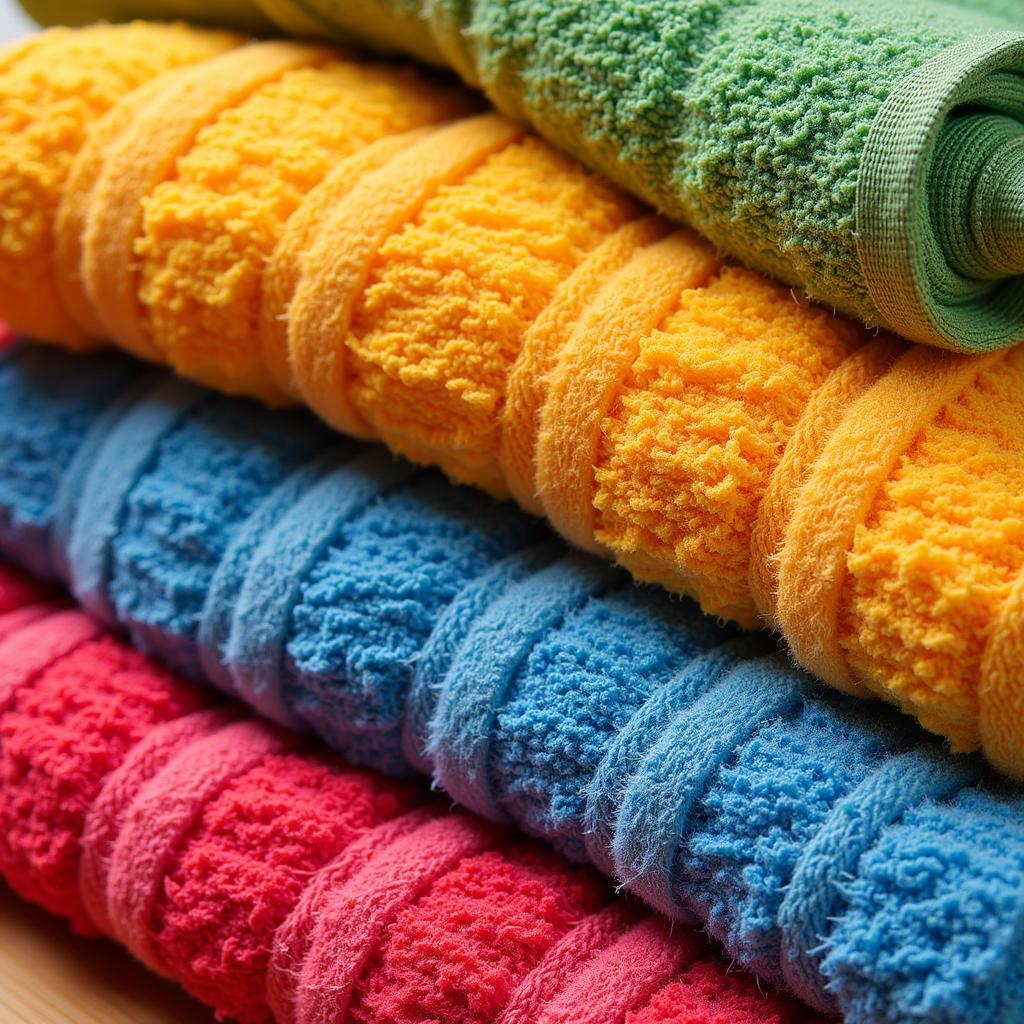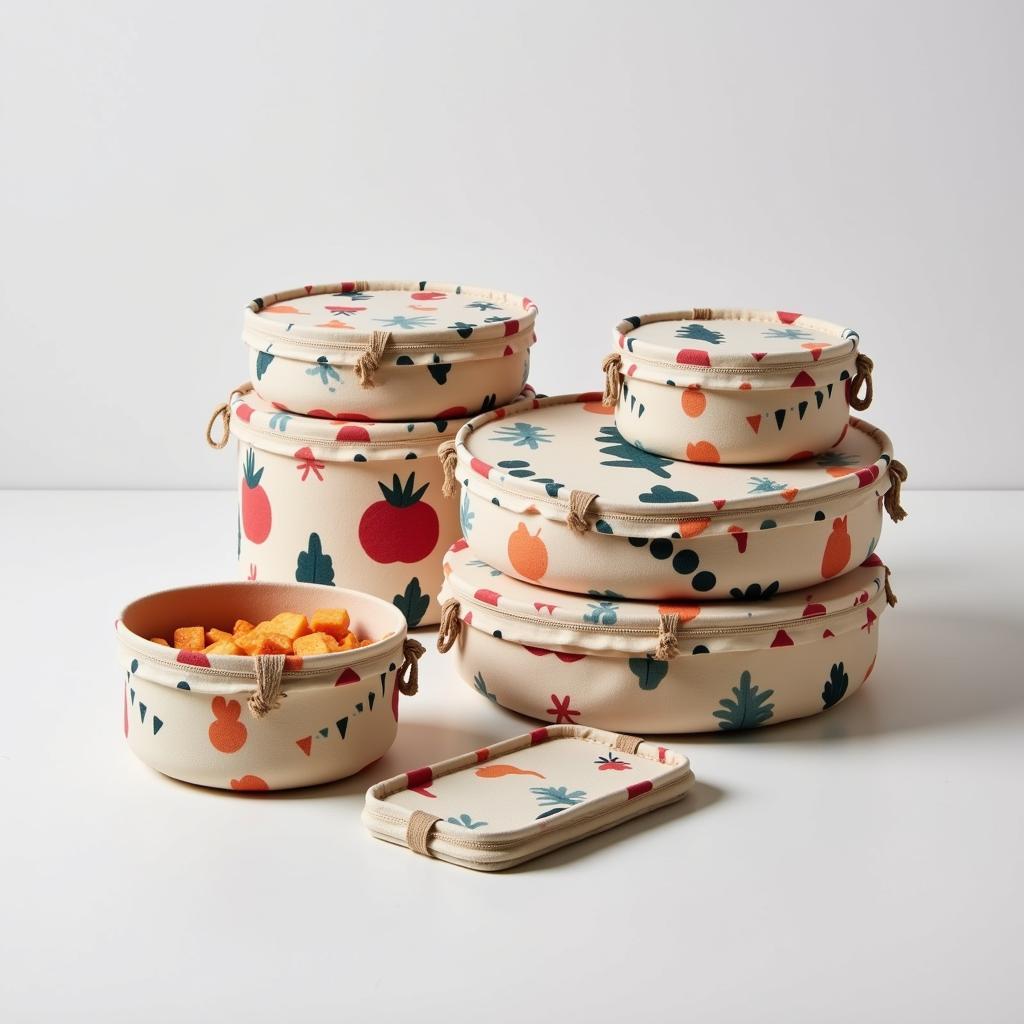Food safety is paramount, and in the heart of our culinary havens – our kitchens – every precaution counts. Enter “Food Safe Fabric,” a seemingly simple term that holds significant weight in maintaining a hygienic cooking and dining environment. But what exactly does it mean, and why should you care?
 Food safe fabric kitchen towels
Food safe fabric kitchen towels
Unraveling the Mystery: What is Food Safe Fabric?
Food safe fabric refers to materials specifically engineered and treated to ensure they don’t leach harmful chemicals or substances into our food. This means that whether you’re wiping down surfaces, straining broths, or even storing fresh produce, these fabrics are your allies in preventing contamination and maintaining the integrity of your meals.
Why Food Safe Fabric Matters: A Closer Look
Imagine this: you’re meticulously preparing a meal, ensuring every ingredient is fresh and clean. But as you reach for that trusty kitchen towel to wipe your hands, you unknowingly introduce invisible contaminants into your food. Standard fabrics often harbor bacteria, absorb cleaning chemicals, or even release dyes upon contact with moisture and heat – a recipe for potential health risks. Food safe fabrics, however, are designed to mitigate these risks.
The Benefits of Choosing Food Safe Fabric
- Health First: The primary advantage lies in safeguarding your health. By preventing the transfer of harmful substances, you minimize the risk of allergies, food poisoning, and other health complications.
- Enhanced Durability: Crafted to withstand frequent washing and rigorous use, food safe fabrics are inherently more durable than their conventional counterparts.
- Sustainability: Often made from natural and renewable resources like organic cotton or bamboo, they offer an eco-friendly alternative to single-use paper towels or plastic wrap.
Navigating the Fabric Maze: Identifying Food Safe Options
With a plethora of fabrics available, deciphering which ones are truly food safe can seem daunting. Let’s simplify this:
Best Choices for a Food Safe Kitchen:
- Organic Cotton: This natural fiber is breathable, absorbent, and free from harmful pesticides, making it ideal for dishcloths, towels, and produce bags.
- Bamboo: Known for its antibacterial properties and rapid renewability, bamboo fabric is a sustainable and hygienic option for various kitchen applications.
- Hemp: This durable and moisture-wicking fabric is naturally resistant to bacteria and mildew, making it suitable for everything from aprons to bread bags.
Proceed with Caution:
- Synthetic Fabrics: While some synthetics are marketed as food safe, it’s crucial to verify certifications and research potential leaching concerns.
- Treated Fabrics: Fabrics treated with stain-resistant or water-repellent finishes may contain chemicals that could migrate to food, especially under high temperatures.
Food Safe Fabric Care: Preserving Hygiene and Longevity
Investing in food safe fabric is an excellent step, but proper care is essential to maximize their lifespan and maintain their hygienic properties:
- Frequent Washing: Regular washing, ideally after each use, is crucial to eliminate bacteria and prevent cross-contamination.
- Hot Water and Natural Detergents: Opt for hot water washes and gentle, natural detergents that are free from harsh chemicals or fragrances.
- Air Drying: Air drying is preferable as high dryer heat can degrade the fabric fibers over time.
 Food safe fabric food storage containers
Food safe fabric food storage containers
Food Safe Fabric: A Wise Investment for Your Well-being
Transitioning to food safe fabrics in your kitchen is a simple yet impactful step towards prioritizing health and sustainability. By making informed choices and adopting proper care routines, you can transform your kitchen into a sanctuary of culinary creativity and well-being. Remember, every meal is an opportunity to nourish your body, and using food safe fabric ensures that nourishment is pure and uncompromised.